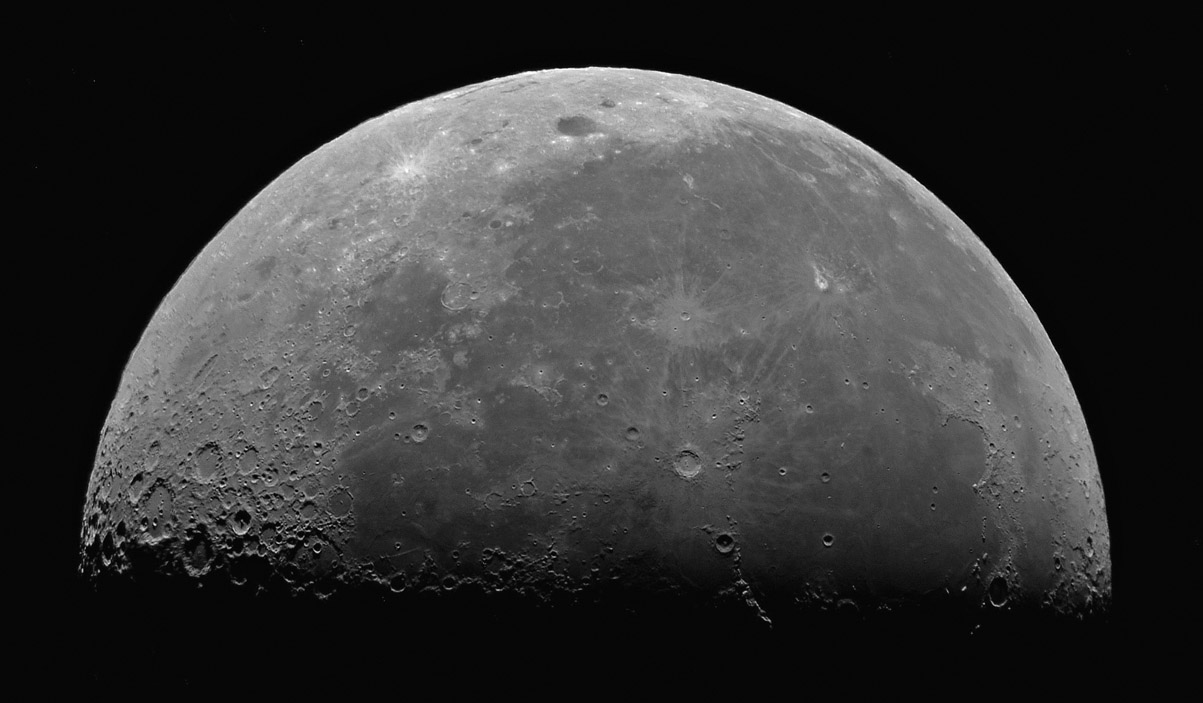Difference between revisions of "December 1, 2010"
| Line 3: | Line 3: | ||
<!-- ws:start:WikiTextHeadingRule:1:<h1> --> | <!-- ws:start:WikiTextHeadingRule:1:<h1> --> | ||
<!-- ws:start:WikiTextLocalImageRule:16:<img src="/file/view/LPOD-Dec1-10.jpg/183959699/LPOD-Dec1-10.jpg" alt="" title="" /> -->[[File:LPOD-Dec1-10.jpg|LPOD-Dec1-10.jpg]]<!-- ws:end:WikiTextLocalImageRule:16 --><br /> | <!-- ws:start:WikiTextLocalImageRule:16:<img src="/file/view/LPOD-Dec1-10.jpg/183959699/LPOD-Dec1-10.jpg" alt="" title="" /> -->[[File:LPOD-Dec1-10.jpg|LPOD-Dec1-10.jpg]]<!-- ws:end:WikiTextLocalImageRule:16 --><br /> | ||
| − | <em>image by [mailto:barrufeta5@yahoo.es | + | <em>image by [mailto:barrufeta5@yahoo.es Jordillo], Montserrat Pinazo/Malaga, Spain</em><br /> |
<br /> | <br /> | ||
This is one of the most wonderful views you can see through an eyepiece. I always start observing with a low power view of the entire Moon, just as Jordillo has captured here. I look to see what is showing up along the terminator for later high power examination. And then I look a little further into the bright zone, to see features that will be great to observe with about 30° lighting. Finally I scan the limb to see what features - such as the Orientale dark mare patches - lean our way. Then I put in a shorter focal length eyepiece and repeat the process.<br /> | This is one of the most wonderful views you can see through an eyepiece. I always start observing with a low power view of the entire Moon, just as Jordillo has captured here. I look to see what is showing up along the terminator for later high power examination. And then I look a little further into the bright zone, to see features that will be great to observe with about 30° lighting. Finally I scan the limb to see what features - such as the Orientale dark mare patches - lean our way. Then I put in a shorter focal length eyepiece and repeat the process.<br /> | ||
<br /> | <br /> | ||
| − | <em>[mailto:tychocrater@yahoo.com | + | <em>[mailto:tychocrater@yahoo.com Chuck Wood]</em><br /> |
<br /> | <br /> | ||
<strong>Technical Details</strong><br /> | <strong>Technical Details</strong><br /> | ||
| Line 13: | Line 13: | ||
<br /> | <br /> | ||
<hr /> | <hr /> | ||
| − | <div>You can support LPOD when you buy any book from Amazon thru [http://www.lpod.org/?page_id=591 | + | <div>You can support LPOD when you buy any book from Amazon thru [http://www.lpod.org/?page_id=591 LPOD!]<br /> |
</div> | </div> | ||
---- | ---- | ||
===COMMENTS?=== | ===COMMENTS?=== | ||
| − | + | Register, and click on the <b>Discussion</b> tab at the top of the page. | |
Revision as of 16:28, 11 January 2015
A Perfect View

image by Jordillo, Montserrat Pinazo/Malaga, Spain
This is one of the most wonderful views you can see through an eyepiece. I always start observing with a low power view of the entire Moon, just as Jordillo has captured here. I look to see what is showing up along the terminator for later high power examination. And then I look a little further into the bright zone, to see features that will be great to observe with about 30° lighting. Finally I scan the limb to see what features - such as the Orientale dark mare patches - lean our way. Then I put in a shorter focal length eyepiece and repeat the process.
Chuck Wood
Technical Details
WO-FLT98, camera Pentax istDS, mount eq6pro, 2 photos iso 200 1/60s registax apiled, photoshop and photofiltre final process.
COMMENTS?
Register, and click on the Discussion tab at the top of the page.



